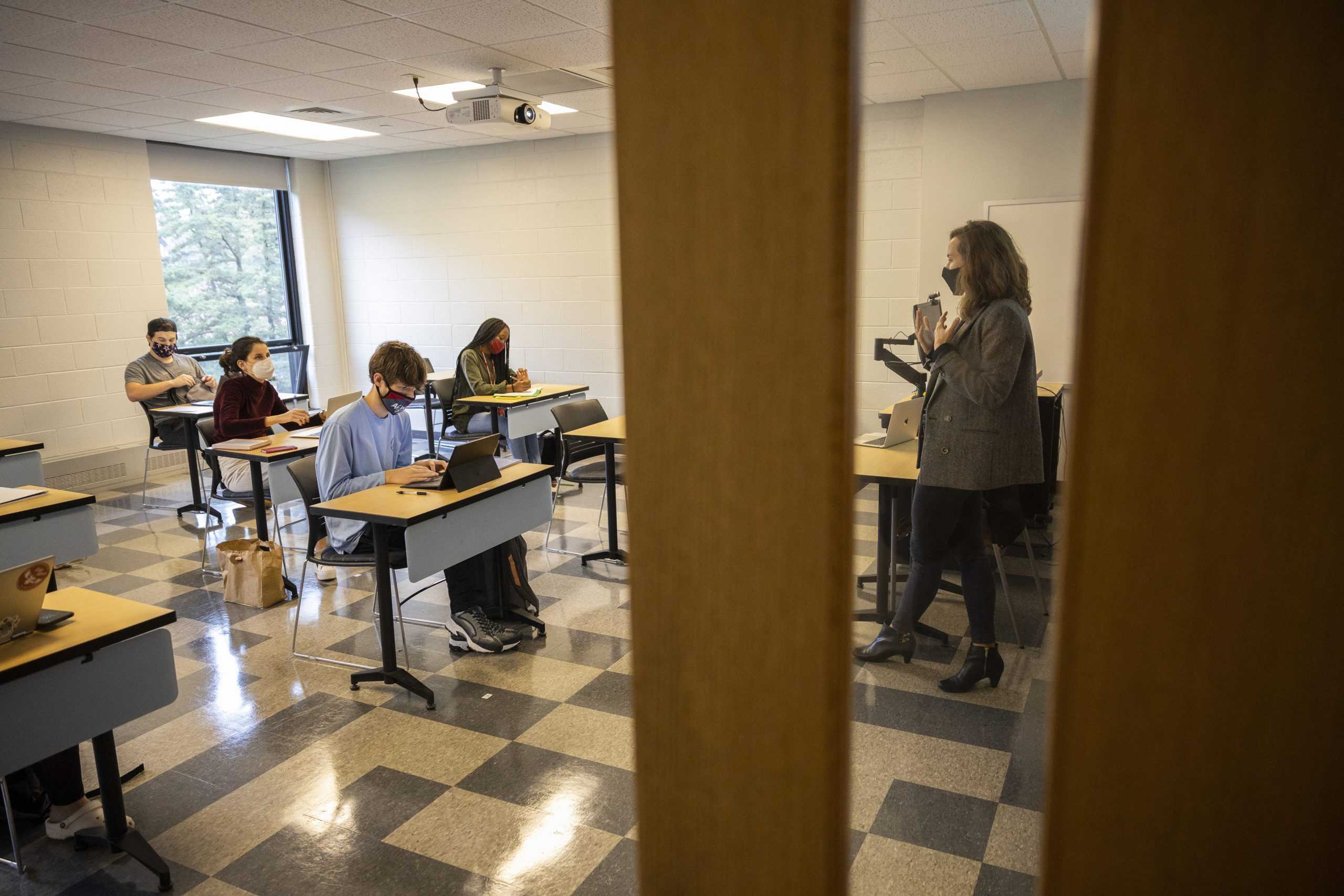All St. Joe’s students who intend to be fully remote next semester must let the university know by Oct. 15, according to a university announcement sent Oct. 1.
The announcement, which came from Cheryl McConnell, Ph.D., provost and vice president for Academic Affairs, said the Oct. 15 deadline was firm.
Once approved, remote students will only be able to register for online or hyflex courses, the announcement stated, not for hybrid or face-to-face classes.
Hybrid courses alternate between face-to-face and online instruction while hyflex courses simultaneously deliver content face-to-face and online.
Students who are approved for a fully remote schedule will be the first pool of students to register for spring courses.
“We plan to give fully online students the opportunity to enroll in fully online courses and hyflex courses in advance so that we better match student needs and requests,” McConnell wrote in a follow-up email to questions from The Hawk. “Fully online students who register for a face-to-face course or a hybrid course by mistake will have those courses removed from their schedule before registration begins for non-fully online students.”
McConnell wrote that in asking students to make a decision by Oct. 15, the university is trying, to the best of its ability, to match the needs of students with available courses.
“Sometimes the need to protect vulnerable employees does not perfectly meet student demands/needs,” McConnell wrote. “This is inescapable. However, every effort is being made to fully assess students’ online and on-ground needs and build the spring schedule accordingly.”
Shannon Kelly ’21 signed up to take her courses fully online for the fall 2020 semester and plans on doing the same for the spring. But Kelly said as a second-semester senior, she is concerned about the availability of courses she needs to graduate since she will be limited to online and hyflex courses.
“Your pick time won’t matter if the class you want isn’t online,” Kelly said.
Fallon Oates ’21, who plans to enroll in face-to-face courses for the spring, said she also worries about how second-semester seniors will be accommodated given that online students will get first pick for online and hyflex courses.
“I definitely think [online students picking first] is going to hurt people,” Oates said. “I don’t understand why, if they are choosing to do all online, that they should get an upper hand, especially over seniors who waited so long to get classes picked first and need them to graduate.”
Oates said she wants to make sure her course schedule for this semester will consist of [face-to- face] classes after all of her classes this semester were switched to an online format after modalities were released.
Online students will not be competing for these in-person courses, though, as they are not allowed to register for face-to-face classes.
“I hate it,” Oates said of online learning. “I’m trying to find classes next semester that are going to be on campus.”
If the spring semester is anything like the fall, Oates may struggle to put together a fully face-to-face schedule.
As The Hawk reported in a Sept. 1 article about students struggling with a mixed modality course load, approximately 17% of all undergraduate day courses in the fall are face-to-face. The rest are a combination of either online, independent study, internships, capstones, hyflex and hybrid courses, according to Gail Benner, director of public relations and media.
Aisha Lockridge, Ph.D., associate professor of English and Faculty Senate president, wrote in response to questions from The Hawk that faculty will continue to identify the modality they feel best accommodates their “subject matter, student need, and professorial ability.”
“I planned my courses with as much flexibility as possible because we are in a pandemic,” Lockridge wrote. “I expect that students are worried and stressed, and I want to create as much space as possible to accommodate that while effectively teaching course material.”
Unlike the fall, when many courses were still in flux just before or even after the semester started, spring course modalities should be finalized once the spring semester begins, McConnell wrote, except for in “extraordinary circumstances.”
In the fall, students who chose a fully remote schedule were not allowed to live on campus. In the spring, students currently on campus who wish to take all of their classes online will be allowed to continue living on campus, according to Benner in an email to The Hawk on behalf of McConnell.
Benner wrote that housing options are also available for students who wish to remain on campus and for students currently at home who wish to return to campus for the spring.















































